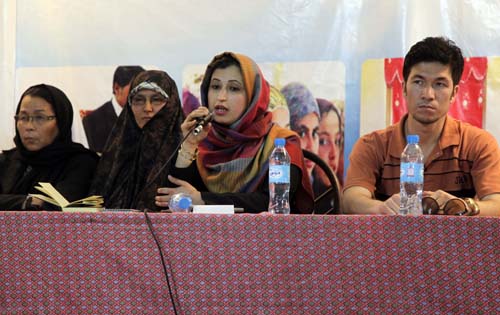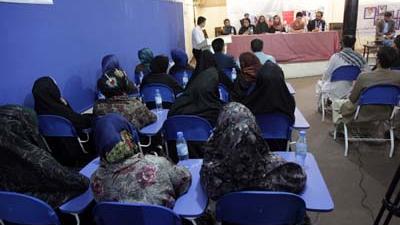HERAT -At a United Nations-backed televised debate in Afghanistan’s western province of Herat, human rights experts and civil society activists discussed the issue of child marriage and highlighted the negative consequences of this widespread phenomenon in Afghanistan society.
“Child marriage is a violation of human rights,” said a member of Herat’s provincial council, Sakina Hossaini, who was among six other panelists at the debate. “It is essential to discuss ways that can augment the efforts of the Afghan Government and its partners to eliminate this harmful practice,” she added.
Another panelist and a civil society activist, Fatemah Behboodzade, said that child marriage can often result in an increase of violence against women.
“It deprives a girl of her right to education and exposes her to marginalization and victimization,” added Ms. Behboodzade.
Around 90 audience members including civil society representatives, government officials and professors and students of universities, listened to the views of the panelists on the issue. The debate was recorded by Herat’s Maihan television station and will be broadcast in Herat and Farah provinces next week, reaching an audience of around 400,000 people.
In other comments during the show, the head of the Civil Society Network in Herat, Khalil Parsa emphasized the need to create awareness about the negative consequences of child marriages, with the aim of eliminating the practice.
The panelists called on the Government to step up efforts to implement the Elimination of Violence against Women (EVAW) law more effectively and to reduce the cases of violence against women.
Afghanistan’s EVAW law criminalizes 22 acts of violence against women, including child and forced marriages, rape and beating, and specifies punishment for perpetrators.
UNAMA’s latest report on EVAW law, released in December 2013, found that Afghan authorities registered more cases of violence against women in 2013, but the number of prosecutions and convictions under the law remained low, with most cases settled by mediation.







